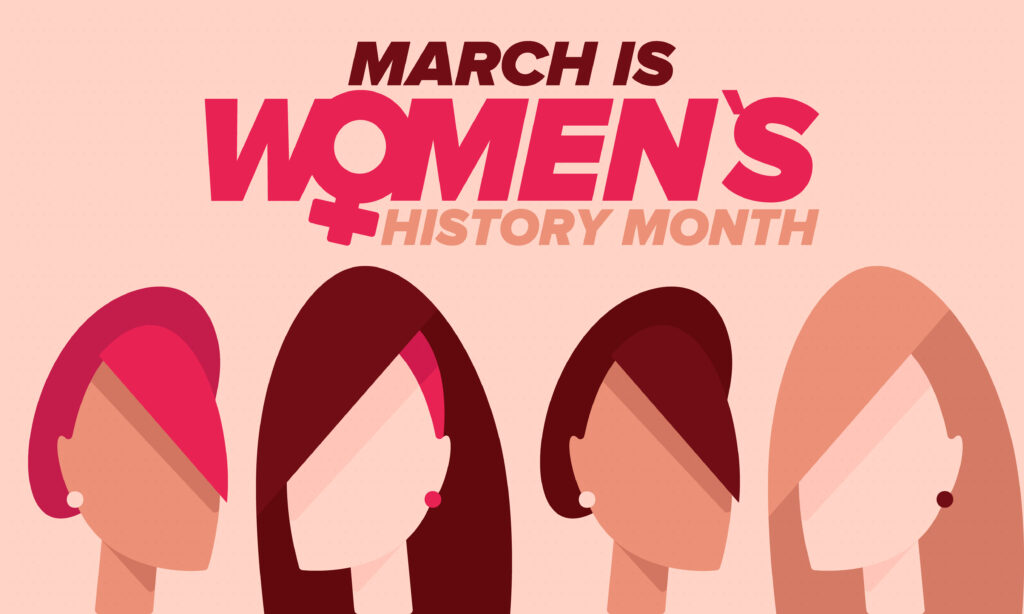Celebrating Women Leaders in Solid Waste at GBB and across the country in honor of Women’s History Month
By Jennifer Porter (GBB Vice President), Theresa Evans (GBB Senior Consultant) and Paige Davis (GBB Consultant II)

Inspired by Women’s History Month, this installment of the GBB Circular highlights key female figures in the United States environmental movement. Throughout the United States and the world, women have consistently contributed to the advancement and improvement of solid waste management and environmental protection in communities. Women are playing a more influential role in the environmental movement than ever before. To celebrate this achievement, GBB is spotlighting female environmentalists from each of the five (5) U.S. states that are home to current GBB staff, which include our headquarters in the Commonwealth of Virginia, as well as Georgia, Iowa, New York, and Pennsylvania.
- Virginia:
Headquartered in Virginia, GBB’s first home state was the birthplace of many women who have worked for more inclusive, healthy communities. In 2020, Virginia’s Council on Environmental Justice became permanent advisory body to the Governor, an effort led by women including Kendyl Crawford and Charniele Herring. These current advocates build on historical activists in the early 1900s such as Maggie Lena Walker, the founder and first-ever female bank president (Richmond’s Saint Luke Penny Savings Bank) and leader of the Richmond Chapter of the National Association for the Advancement of Colored People and the Council of Colored Women. [1]
- Georgia:
GBB’s most southern home state is Georgia, where the environmental movement has also been advanced by women such as Jasmine Crowe and Janise Ray, who work to support the health of their local communities. Crowe, the owner of Goodr, provides a food rescue app that connects food donations to community members. Her contribution has supported many families in the area and diverted thousands of pounds of food from landfills.[2] Ray, an environmental activist and author known for her novels, such as 1999’s Ecology of a Cracker Childhood, illuminating rural communities’ environmental and economic conditions in southern Georgia. [3] Crowe, Ray and others stand on the shoulders of great Georgian pioneers of women’s rights, such as Helen Augusta Howard and Andella Hunt Logan whose bold contributions advanced the women’s suffrage in the state at the turn of the 20th Century [4].
- Iowa:
Iowa is the most recent state added as a GBB home state for our staff. In Iowa’s history, Ada Haydan is recognized as one of the premier conservationists for her work in prairie preservation.[5] Haydan was born in 1884 to a family who owned an Iowa farm on the natural prairie and developed a love for conservationism that led her to be one of the first women to earn a Ph.D. at Iowa State College [6]. Haydan worked as a professor in biology and became one of the first scientists to study prairies. Her work on research on Iowa native prairie tracts documented the complex ecology of prairies and identified these areas as complete ecosystems. Carrying forth the legacy of the past, many female Iowans are making a difference today in the inclusive environmental movement including Angelisa Belden at the Iowa Environmental Council and Kristi Knous at the Community Foundation of Greater Des Moines.
- New York:
Home to many current GBB-ers, New York has a long history of significant social and environmental activism. The state has been the location of hallmark events for female advancement including the Seneca Falls Women’s Rights Convention of 1848 led by Elizabeth Cady Stanton and Lucretia Mott, through to modern day pivotal environmental justice events, such as the Love Canal crisis in the 1970’s. Known as the premier organizer of the Love Canal Homeowners Association, Louis Marie Gibbs brought attention to the public health conditions of the community surrounding an elementary school built on a brownfield of a toxic chemical dump. The Love Canal Crisis allowed for the birth of solid waste-related environmental law as it inspired the Resource Conservation Recovery Act (RCRA). [7]
- Pennsylvania:
GBB’s fifth home state, Pennsylvania, also has a legacy of environmental and social activism as it is the birthplace of Rachel Carson, a marine biologist and author who shaped the national dialogue on conservation and environmental justice in the US. Carson’s essays and acclaimed novel, Silent Spring, exposed the devastating health effects of DDT on wildlife while highlighting the link between DDT and long-term chronic diseases such as cancer. [8] Her novel inspired activism that led to the DDT ban in 1972. Pennsylvania is also home to women’s rights activists Caroline Katzenstein and Dora Kelly Lewis Katherine, who were voices of the suffrage movement on a state level as leaders of the National Woman’s Party (NWP), dating back to 1912. [9]
As environmentalism in the US continues to evolve, we must ensure that the stories of female leaders of all ethnic backgrounds, classes, and the communities they fight to protect, are recognized and interwoven into the national narrative of the environmental movement and women’s rights. While the contributions of the women featured here from GBB’s five home states are widely recognized to some, others will be new names. Indeed, women still face significant obstacles that challenge their involvement in environmental-related disciplines. Understanding these challenges and empowering women in environmental-related fields, particularly in solid waste management, is key to protecting the environmental health of communities and reaching GBB’s goal of equitable, sustainable waste management now, for all, and for generations to come.
[1] Lomax, Silicia. CELEBRATING INNOVATIVE BLACK LEADERS THAT HAVE PAVED THE WAY FOR OUR WORK. Retrieved from: waxmanstrategies.com/pov/celebrating-innovative-black-leaders-that-have-paved-the-way-for-our-work/
[2] Jasmine Crowe: What Can We Do To Tackle Food Waste And Hunger? ( September 2021). Retrieved from: www.npr.org/2021/09/03/1033869498/jasmine-crowe-what-can-we-do-to-tackle-food-waste-and-hunger
[3] Purcell, Kim. Janisse Ray. (September 2018). Retrieved from: www.georgiaencyclopedia.org/articles/arts-culture/janisse-ray-b-1962/
[4] Georgia and the 19th Amendment. (N.D.). Retrieved from: www.nps.gov/articles/georgia-and-the-19th-amendment.htm
[5] Famous Iowa Conservationists. (November 2017). Retrieved from: iowaee.org/2017/11/famous-iowa-conservationists/#:~:text=Ada%20Hayden%20~%201884%2D1950,woman%20to%20earn%20her%20Ph
[6] Famous Iowa Conservationists. (November 2017). Retrieved from: iowaee.org/2017/11/famous-iowa-conservationists/#:~:text=Ada%20Hayden%20~%201884%2D1950,woman%20to%20earn%20her%20Ph
[7] Lois Marie Gibbs Biography.(N.D.). Retrieved from: www.fredonia.edu/academics/convocation/gibbsbio
[8] Female Environmentalists Celebrated During Women’s History Month. (March 2013). Retrieved from: www.huffpost.com/entry/female-environmentalists-womens-history_n_2792953
[9] Dora Kelly Lewis: Philadelphia’s Voice in the Suffrage Movement. (N.D.). Retrieved from: inherownright.org/spotlight/biographical-profiles/feature/dora-kelly-lewis-philadelphia-s-voice-in-the-suffrage-movement





